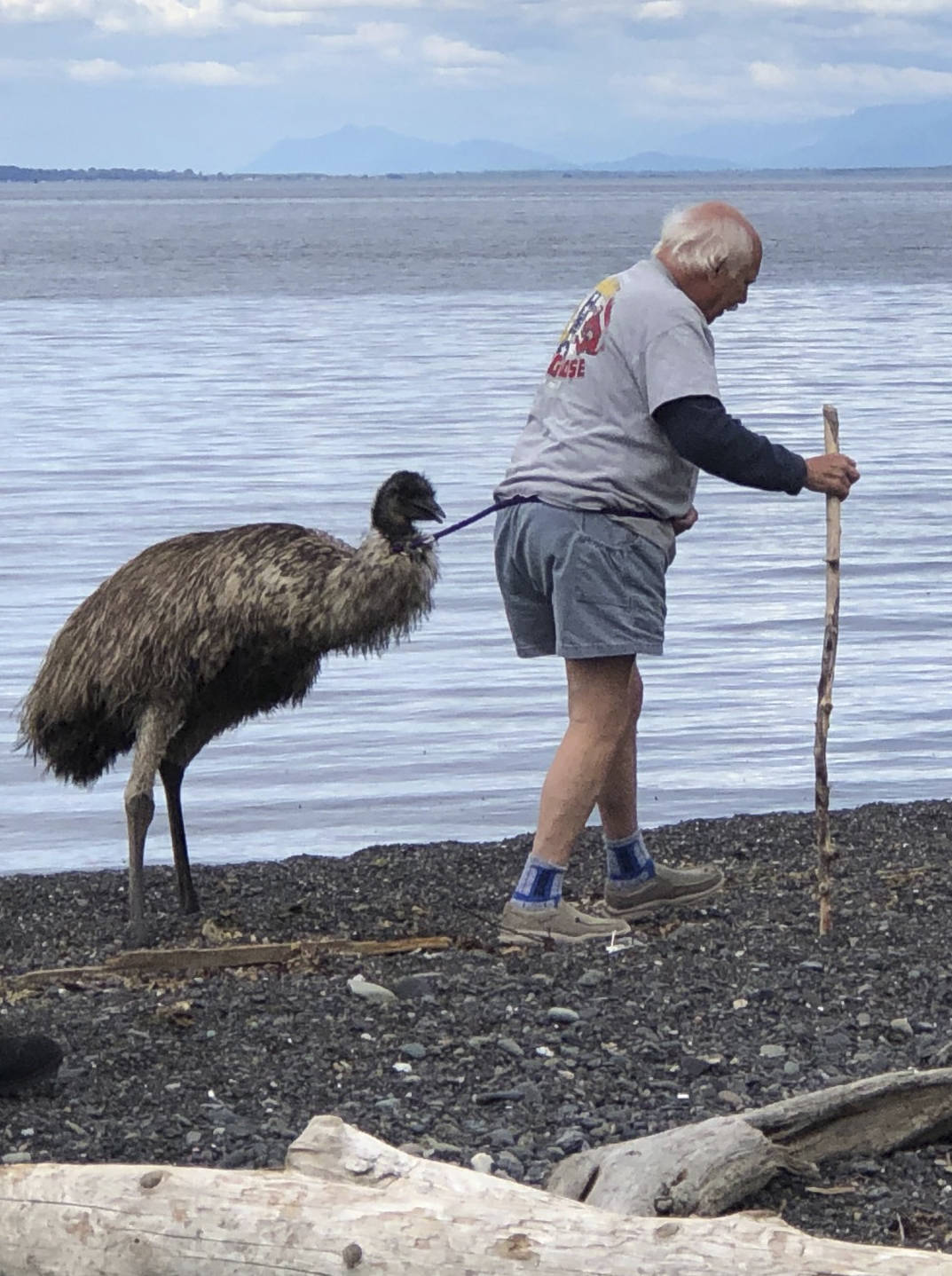Tish Knapp awoke on Thursday, June 27, to find her two 1-year-old emus missing after strong winds had blown open a gate during the night.
She discovered Katie Lou milling around, but Louise was more curious and had left Knapp’s property on Buckhorn Road.
Community members sprang into action, driving through Eastsound and the north shore area to help locate her. Knapp also contacted FedEx and UPS for drivers to be on the lookout. The emu is a flightless bird native to Australia and the second-largest living bird by height after its relative the ostrich.
Finally, around 4 p.m. that day, Louise was spotted wandering down North Beach. Knapp, family members and friend Chantelle Hildreth spent nearly three hours coaxing Louise to the car and getting her home. They also called in Amy Lum, who has experience handling large animals.
“We had a whole group of people there. We had cars parked up on the road. Everyone wanted to help. It was just dear,” Knapp said.
Louise had made her way into marshland in front of the waterfront homes.
“With the assistance of Dale, a local homeowner, we managed to get Louise back onto the beach where we could walk her — or at least we thought we could — back to her home on Buckhorn,” Hildreth said.
Once at the road, Louise was too tired and afraid to go any farther.
“We used some blankets and leashes and tethers to securely wrap Louise and lifted her into the back of my Suburban,” Hildreth said. “In all, Louise was out adventuring for nearly 12 hours. In that time she had a buck encounter that was captured on video by a neighbor. As Louise rested in the resident’s yard, a curious buck approached. When he got too close for comfort, Louise stood up and charged after him.”
Knapp and her late husband Gene first adopted a pair of emus 20 years ago. Ophelia and Desdemona, who were older in age, came from a petting zoo on the mainland.
“Everybody in our family fell in love,” Knapp said.
The two died a decade later, and then the Knapps adopted Horatio, another senior emu. Knapp would play her ukulele and he’d come running to her.
The species typically live to be 25 to 35 years old. This is the first time one of her birds has escaped.
“After Horatio died, it took me a while to get the courage to get these two babies to raise,” Knapp said.



